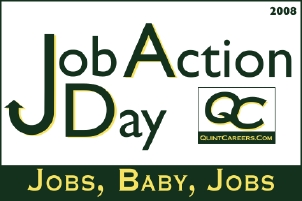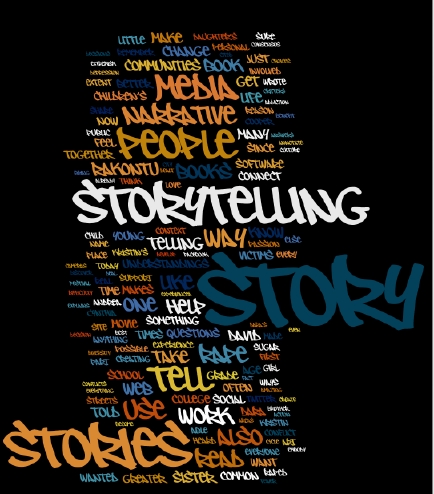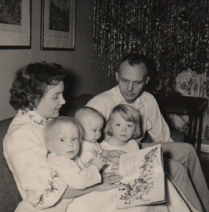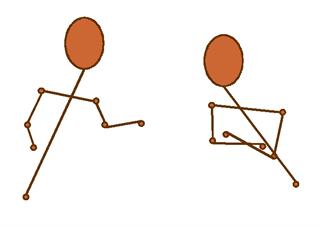
I am so pleased to present the twelfth installment in this series of interviews with some of the gurus of both performance and applied storytelling. This interview is with David Vanadia, whom I came across in an interesting way. Last fall, I sought resumes that I could make-over, fictionalize, and publish in my book, Top Notch Executive Resumes. David responded to my solicitation. I forget exactly why I didn’t use his resume, but I know I wanted to because he is a storyteller. Learn more about David next to his photo.
 David Vanadia’s bio:
David Vanadia’s bio:
A professional storyteller since 1994, my original stories have been heard in the United States and abroad in festivals, conferences, schools, bars, nightclubs, parks, sidewalks, theaters, and on the radio. I have presented at events such as StoryCon, the Digital Storytelling Festival, and the Yukon International Storytelling Festival.
I have been teaching since 1990 and have led workshops of all kinds for organizations of all sizes. I am also a corporate consultant experienced in providing *storied* solutions for public and private enterprises. Using a do-it-yourself ethic, I offer a unique approach to both non-linear time-based media and so-called “narrative environments.”
After experiencing September 11th I decided to leave the rat race, Stop Being Sweet, and move from New York City to follow my heart and live a simpler, more fulfilling life. I now reside in the Pearl District of Portland, Oregon where I host DIY Stories, bike commute in the rain, and teach Tai Chi, Qigong, and Yoga and practice my art.
Q&A with David Vanadia:
Q: How did you initially become involved with story/storytelling/narrative What attracted you to this field? What do you love about it?
A: It’s rather cliche, but my grandfather used to say, “Tell me a story.” My dad used to give my brother and I tape recorders for toys. We’d write scripts and make audio shows. In second grade I became the undefeated champion of the talking contest by being able to speaking sensibly, non-stop, without repeating myself. In sixth grade I wrote a puppet play and recorded it on videotape in the library. Video cameras were something special back then. The librarian at my school (I wish I could remember her name) also allowed me to take home a Super 8mm movie camera (at my request) to shoot my first movie. I got into music in middle school and art was a constant. By the time I was on my own I found myself frustrated by trying to choose between one of the many forms of expression I had enjoyed for so long. Any time I focused on one, I’d feel another was missing. Eventually I discovered storytelling and all of those forms of media fell into place. What I love most about this field is that it’s so old and yet so new. It’s like studying the weather.
Q: The storytelling movement seems to be growing explosively. Why now? What is it about this moment in human history and culture that makes storytelling so resonant with so many people right now?
A: It’s the media. People who create media are going through tools at a rapid rate. Just twenty years ago students of a photography program in college were learning darkroom and film techniques. Today they’re learning Photoshop. They upgrade cameras every year (if they can afford it) and the same thing has happened in other areas of focus. When your livelihood is threatened on a regular basis and the tools you use are obsolete as soon as you purchase them, we examine what skill we can latch onto and develop through the changes. The one thing that everyone can do regardless of where or how they work is create and tell stories. By focusing on the storytelling aspect of their work a photographer, for instance, can use the latest format and still produce amazing photographs. By focusing on story, it doesn’t matter if people use cell phones, RSS, webpages, newsletters, management meetings, or movie screens. Telling a story is something that everyone does and something to which everyone responds. It’s all about the story and now we can more easily discuss narrative via the Internet.
Q: The culture is abuzz about Web 2.0 and social media. To what extent do you participate in social media (such as through LinkedIn, MySpace, Facebook, Twitter, YouTube, Second Life, blogs, etc.)? To what extent and in what ways do you feel these venues are storytelling media?
A: I feel that all media is storytelling media. That’s what media is. Media is a way to tell stories over distances of time and space. I take part in web 2.0 by creating my own website and maintaining it to the best of my ability. I take part in some social networking sites but mostly it makes my head want to explode. I don’t have time to wake up every day and Twitter on Twitter, connect on Facebook, link in on LinkedIn, and make friends on MySpace. I look at the web like the suburbs. I take care of my own yard. Social Networks are like nightclubs where you’re trying to pick up as many people as possible and bring them home with you. Although some people live there…
Q: Are there any current uses of storytelling that repel you or that you feel are inappropriate?
A: None. In fact, it’s the so-called “repulsive” uses of storytelling that are even more fascinating to me because these areas are overlooked or ignored, yet most often play a vital role in being human.
Q: If you could share just 1 piece of advice or wisdom about story/storytelling/narrative with readers, what would it be?
Make sure you actually tell stories in “real life.” Get up in front of audiences and do it. That’s the best way to learn about the art. Everything else (media) is a box that you place between you and your audience further distancing you (and in some cases keeping you safe) from them. Nothing compares to the real deal.
Q: How have you been able to use story in your quest to encourage people to give up sugar?
A: People read my story about struggling with sugar addiction and see themselves in it. It’s like watching a movie and suddenly recognizing, “Oh my gosh, that’s me!” My story acts as a model that shows them that quitting sugar can be done. It makes people want to act because they can see that they are in the midst of their own addiction and heading down the wrong path. Since they are already looking for a way out it’s not hard for them to follow the path I already carved. My story becomes their story.
Q: Your Web site states: “I am an Interdisciplinary Artist who does many different things. Despite seemingly disparate skills, the common denominator in all of my work is STORY.” Can you elaborate on how story ties together all your other work?
A: Story ties all of my work together in the form of narrative. To me, narrative is everything. Every action I take makes up the story I tell and the story that gets told about me. My work is either crafting and creating an original story (for me or someone else) or living a story that will get told (by me or someone else.) The study and practice of storytelling is one side of the story cycle. Taking action and practicing conflict resolution (or conflict inspiration) is the other side of the story cycle. We are always in two constants — creating stories or telling them. It’s two sides of the same coin. It’s Yin and Yang. It’s the Tao. It just is.
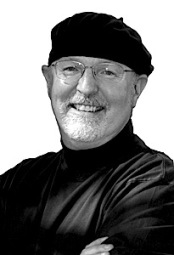 market and the world to know about them.
market and the world to know about them.
